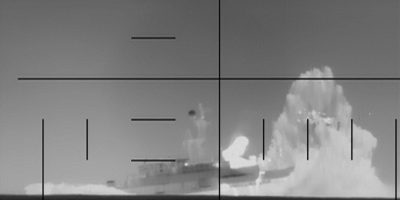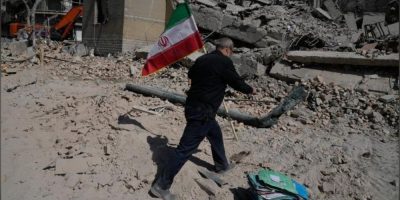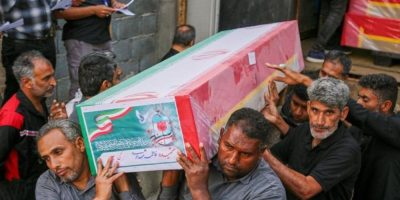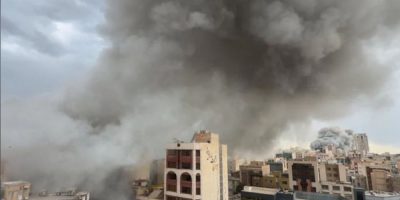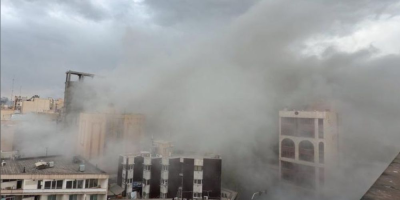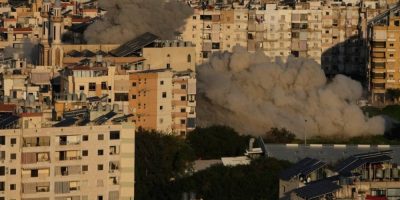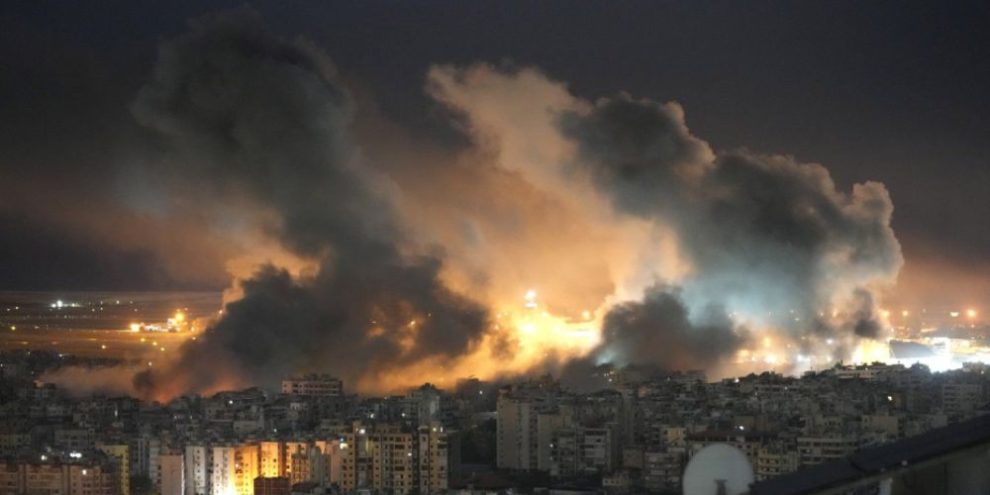
Israel's military announced Sunday it is now taking aim at the Lebanon-based Hezbollah's financial arm and will attack a “large number of targets” in Beirut and elsewhere. Explosions began in Beirut's southern suburbs about an hour later.
Evacuation warnings affected southern Beirut, the eastern Bekaa valley and parts of southern Lebanon. AP video showed strikes near Lebanon’s only airport but it continued to operate.
The strikes will target al-Qard al-Hassan "all over Lebanon,” a senior Israeli intelligence official said. Al-Qard al-Hassan is a Hezbollah unit that's used to pay operatives of the Iran-backed militant group and help buy arms, the official said, speaking on condition of anonymity in line with army regulations.
The registered nonprofit, sanctioned by the U.S. and Saudi Arabia, provides financial services and is also used by ordinary Lebanese. Its name in Arabic means “the benevolent loan,” and Hezbollah has used it to entrench its support among the Shiite population in a country where state and financial institutions have failed in recent years.
“It’s a big deal,” said David Asher, an expert on illicit financing who has worked at the U.S. Defense and State Departments and is now a senior fellow at the Hudson Institute.
“AQAH is a cash-based organization. The cash will be trash” in the event of strikes, he said, adding that it has large accounts with big Lebanese banks.
Al-Qard al-Hassan in a statement called the decision to target it a sign of Israel’s “bankruptcy” and assured customers it had taken “measures” to ensure their funds were safe. A stream of people left the areas surrounding its branches in Beirut.
In one evacuation notice, for the Choueifat area south of Beirut, the Israeli military mislabeled one target, causing confusion and panic. The location was labeled as Grand Cinema ABC Verdun, a theater in an upscale shopping mall in central Beirut more than 10 kilometers (6 miles) away.
A year of escalating tensions and frequent cross-border fire between Israel and Hezbollah over the war in Gaza turned into all-out war last month. Israel sent ground troops into Lebanon early this month.
Israel's announcement came a day after U.S. Defense Secretary Lloyd Austin called civilian casualties in Lebanon “far too high” in the Israel-Hezbollah war, and urged Israel to scale back some strikes, especially in and around Beirut.
Lebanese army says 3 soldiers killed in Israeli strike
Israel has increased strikes on southern neighborhoods of Beirut known as the Dahiyeh, a crowded residential area where Hezbollah has a strong presence. It is also home to many civilians unaffiliated with the militant group.
In southern Lebanon, the Lebanese army said three soldiers were killed in an Israeli strike on their vehicle. There was no immediate comment on that from the Israeli military, which said it struck more than 100 Hezbollah targets in southern Lebanon in the past day and continued ground operations there.
Lebanon’s army has largely kept to the sidelines in the war. The military is a respected institution in Lebanon, but isn't powerful enough to impose its will on Hezbollah or defend the country from an Israeli invasion.
Israel's military said Hezbollah fired more than 170 rockets into the country on Sunday. Israel’s Magen David Adom rescue service said three people were slightly injured from a fire sparked by a rocket attack on the northern city of Safed.
In the middle is the U.N. peacekeeping mission UNIFIL, which said Israeli forces on Sunday “deliberately demolished an observation tower and perimeter fence of a U.N. position” in southern Lebanon. It again resisted Israeli pressure to leave its positions.
Iran supports the Lebanon-based Hezbollah, and the United States is investigating an unauthorized release of classified documents indicating that Israel was moving military assets into place for a military strike in response to Iran’s ballistic missile attack on Oct. 1, according to three U.S. officials. They spoke on condition of anonymity because they weren’t authorized to discuss the matter publicly.
Medics warn of a catastrophic situation in Gaza
Israeli strikes on homes in northern Gaza overnight and into Sunday left at least 87 people dead or missing, the territory’s Health Ministry said, as a large-scale operation continued against Hamas militants said to be regrouping.
The ministry said another 40 people were wounded in the strikes on the town of Beit Lahiya, which was among the first targets of Israel’s ground invasion nearly a year ago. The Israeli military said it struck a Hamas target.
Among the dead were parents and eight children, according to Raheem Kheder, a medic. He said the strike flattened a multistory building and at least four neighboring houses.
The Israeli military said it used precise munitions against a Hamas target.
The U.S. is urging Israel to press for a cease-fire in Gaza following the killing of Hamas leader Yahya Sinwar last week. But neither Israel nor Hamas has shown interest in such a deal after negotiations sputtered to a halt in August.
In central Gaza, six people, including a child, were killed when a strike hit a car in Deir al-Balah, Al-Aqsa Martyrs hospital officials said. The bodies were counted by AP journalists.
Doctors Without Borders, the international charity known by its French acronym MSF, called on Israeli forces to immediately stop their attacks on hospitals in northern Gaza after the Health Ministry said Israeli troops had fired on two hospitals over the weekend.
Israel's military said it was operating near one hospital but hadn't fired directly at it.
Internet connectivity went down in northern Gaza late Saturday, making it difficult to gather information about strikes and complicating rescue efforts.
Israel ordered the entire population of the northern third of Gaza, including Gaza City, to evacuate to the south in the war's opening weeks and reiterated those instructions this month. Around 400,000 people are believed to have remained.
On Oct. 7, 2023, Hamas-led militants blew holes in Israel’s security fence and stormed in, killing around 1,200 people, mostly civilians, and abducting another 250. Around 100 captives are still being held in Gaza, a third of whom are believed to be dead.
Israel’s offensive in Gaza has killed more than 42,000 Palestinians, according to local health authorities, who don't distinguish combatants from civilians. The war has destroyed large areas of Gaza and displaced about 90% of its population of 2.3 million people.
___
Magdy reported from Cairo and Shurafa from Deir al-Balah, Gaza Strip. Associated Press writers Adam Schreck in Jerusalem, Jack Jeffery in Ramallah, West Bank, and Zeke Miller, Mike Balsamo, Eric Tucker and Tara Copp in Washington contributed to this report.
